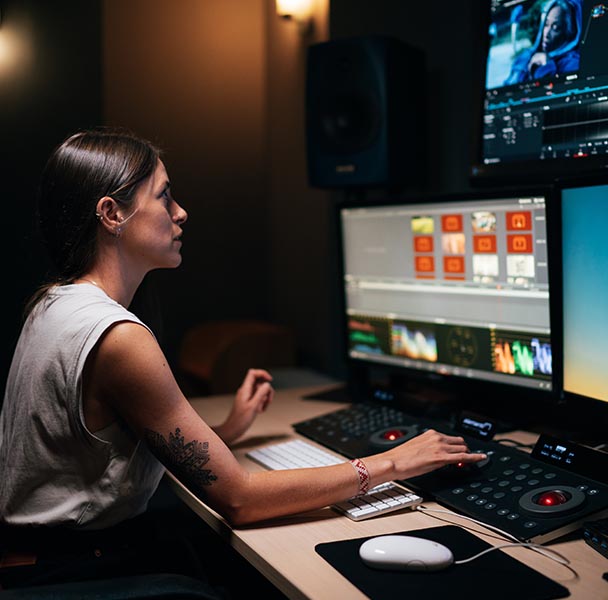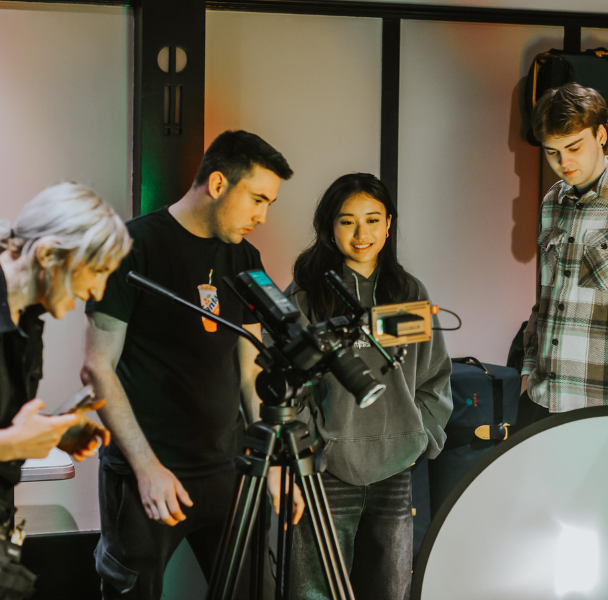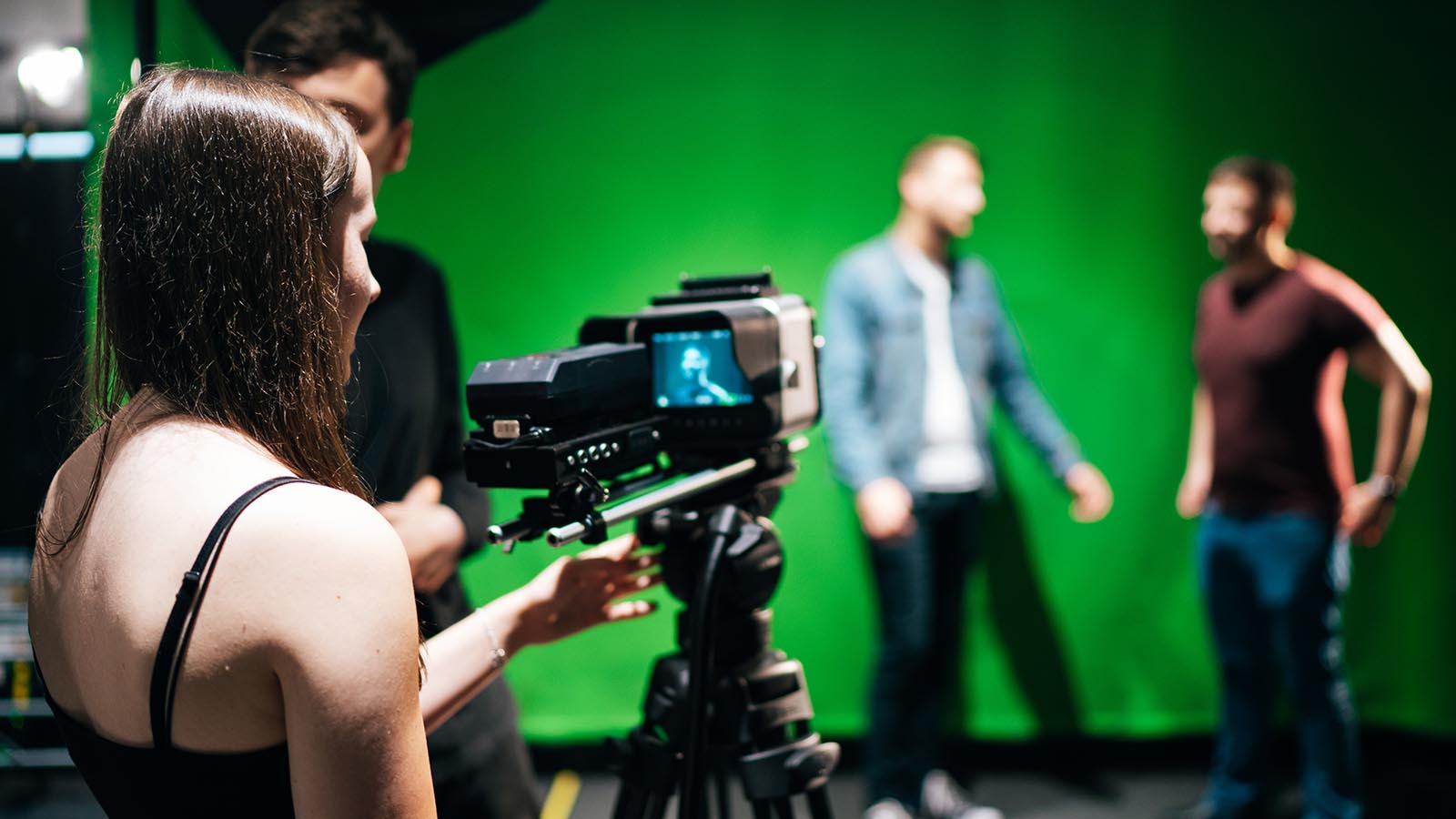TWO-YEAR ACCELERATED DEGREE:
£11,440 per year
THREE-YEAR DEGREE:
£9,535 per year
The annual tuition fee is fully funded via Student Finance England for eligible home-fee students.
TWO-YEAR ACCELERATED DEGREE:
£9,000 per year
You may also be eligible for a bursary or discount, please enquire with our friendly Admissions Team.
THREE-YEAR DEGREE:
£7,500 per year
You may also be eligible for a bursary or discount, please enquire with our friendly Admissions Team.
TWO-YEAR ACCELERATED DEGREE:
£11,440 per year
THREE-YEAR DEGREE:
£9,535 per year
The annual tuition fee is fully funded via Student Finance England for eligible home-fee students.
TWO-YEAR ACCELERATED DEGREE:
£11,440 per year
THREE-YEAR DEGREE:
£9,535 per year
TWO-YEAR ACCELERATED DEGREE:
£11,440 per year
THREE-YEAR DEGREE:
£9,535 per year
The annual tuition fee is fully funded via Student Finance England for eligible home-fee students.
TWO-YEAR ACCELERATED DEGREE:
JANUARY 2026
International students (non-EU/EEA/Swiss)*: £16,500 per year
EU/EEA/Swiss students*: £11,440 per year
FROM SEPTEMBER 2026
International students (non-EU/EEA/Swiss)*: £17,000 per year
EU/EEA/Swiss students*: £11,440 per year
THREE-YEAR DEGREE:
International students (non-EU/EEA/Swiss)*: £16,250 per year
EU/EEA/Swiss students*: £9,535 per year
*Student visa required
For more information regarding SAE’s EU/EEA/Swiss students bursary policy, please read the SAE UK EU Students Bursary Policy.
TWO-YEAR ACCELERATED DEGREE:
International students (non-EU/EEA/Swiss)*: £17,000 per year
EU/EEA/Swiss students*: £11,440 per year
THREE-YEAR DEGREE:
International students (non-EU/EEA/Swiss)*: £16,250 per year
EU/EEA/Swiss students*: £9,535 per year
*Student visa required
For more information regarding SAE’s EU/EEA/Swiss students bursary policy, please read the SAE UK EU Students Bursary Policy.
TWO-YEAR ACCELERATED DEGREE:
JANUARY 2026
International students (non-EU/EEA/Swiss)*: £16,500 per year
EU/EEA/Swiss students*: £11,440 per year
FROM SEPTEMBER 2026
International students (non-EU/EEA/Swiss)*: £17,000 per year
EU/EEA/Swiss students*: £11,440 per year
THREE-YEAR DEGREE:
International students (non-EU/EEA/Swiss)*: £16,250 per year
EU/EEA/Swiss students*: £9,535 per year
*Student visa required
For more information regarding SAE’s EU/EEA/Swiss students bursary policy, please read the SAE UK EU Students Bursary Policy.
TWO-YEAR ACCELERATED DEGREE:
International students (non-EU/EEA/Swiss)*: £17,000 per year
EU/EEA/Swiss students*: £11,440 per year
THREE-YEAR DEGREE:
International students (non-EU/EEA/Swiss)*: £16,250 per year
EU/EEA/Swiss students*: £9,535 per year
*Student visa required
For more information regarding SAE’s EU/EEA/Swiss students bursary policy, please read the SAE UK EU Students Bursary Policy.
TWO-YEAR ACCELERATED DEGREE:
JANUARY 2026
International students (non-EU/EEA/Swiss)*: £16,500 per year
EU/EEA/Swiss students*: £11,440 per year
FROM SEPTEMBER 2026
International students (non-EU/EEA/Swiss)*: £17,000 per year
EU/EEA/Swiss students*: £11,440 per year
THREE-YEAR DEGREE:
International students (non-EU/EEA/Swiss)*: £16,250 per year
EU/EEA/Swiss students*: £9,535 per year
*Student visa required
For more information regarding SAE’s EU/EEA/Swiss students bursary policy, please read the SAE UK EU Students Bursary Policy.
January and September
January and September
January and September
January and September
September 2025
Offers will be made to applicants who are expected to meet, or exceed the entry requirements below, in addition to supplying a personal statement:
SAE Institute will accept non-standard entry applications, which do not meet the 72 UCAS points or equivalent, and/or maths/English at level 2 or equivalent as required:
Students whose first language is not English will need a qualification that demonstrates competence in English, equivalent to UK GCSE (Level 2) grade 4 (c) or above.
Equivalent qualifications can be accepted, where these qualifications have been verified by ENIC and are adopted widely within the UK Higher Education sector, including:
- International ESOL C1 Expert – pass in all four components
- International ESOL SELT B2 (Listening, Reading, Writing, Speaking) – minimum 33 in all components
- ESOL Integrated Skills in English II – pass in all components
*Accepted on exceptional basis for the applicants whose local test centres are affected by closures due to Covid-19
What you can expect from your degree
If you’re looking to launch a career in film, SAE’s Film Production degree will provide you with the expertise you need to get there. Taught as both an accelerated 2-year and typical 3-year option, you’ll learn essential technical film production skills and theoretical knowledge studying this film production degree, so you can succeed in your chosen area of the film industry – whether that’s as a director, producer, screenwriter, cinematographer, editor or another role entirely.
As an SAE student, you’ll get hands-on first-rate facilities, like green screens, editing studios and lighting rigs, to help bring your creative ideas to life. Across the course, you’ll experience the entire production workflow involved in making a film – from story development and script writing, pre-production planning and storyboarding, to filming and editing and, finally, marketing and distribution. You’ll also have access to SAE’s first-rate facilities, like green screens, editing studios and lighting rigs, to help bring your creative ideas to life.
An action-packed second half
As you take your filmmaking to the next level, you’ll put academic concepts like short film theory and cultural context analysis to the test, as you create an impressive portfolio of creative work. Both individually and in small creative teams with your fellow Film Production degree students, you’ll create real-world promotional pieces like adverts and music videos, fictional films and documentaries, across a variety of film genres. You’ll also collaborate creatively with students from other SAE disciplines, such as audio experts, animators, games developers and digital marketers.
During your time at SAE, you’ll be guided and supported by SAE’s expert tutors – talented creative professionals, who also happen to be highly experienced educators. They’ll mentor you throughout your degree, making sure you have a strong grasp of how the film industry works, plus vital business, legal, financial and marketing skills that every creative media professional needs. You’ll work together to plan your Major Project – an in-depth study of a particular area of interest in the film industry, conceived and implemented towards the end of your studies.
At the end of your time with SAE, you’ll graduate with a solid understanding of film theory, enviable practical film production skills and a standout creative portfolio, giving you a real competitive edge in the workplace. Along the way, you’ll have gained a vast network of film industry connections, and will leave us with the desire to either continue on to postgraduate study or launch a successful career as a film industry professional.

What you'll learn
- Learn skills in directing, film production, post-production, cinematography, visual effects, lighting, sound and more.
- Confidently operate the latest film industry software, including Adobe Premiere Pro, and DaVinci Resolve.
- Script and shoot your favourite film and video genres.
- Combine hands-on immersive training with academic learning for holistic education from day one.
- Collaborate creatively with SAE students from other courses, such as audio experts, animators and game developers.
- Gain entrepreneurial and screen business skills to take into your film production career.
- Build an impressive network of connections across the wider creative industries.
- Develop a significant portfolio of work to present to industry.
- Graduate career ready with practical employment skills gained through strong film industry links.
YOUR CAREER IN FILM BEGINS NOW
What your course structure will look like
The BA/BSc (Hons) Film Production course can be studied as an accelerated 2-year degree, split over 6 trimesters, or a traditional 3-year degree, split over 6 semesters. The structure of the degree follows 3 distinct stages – each created to help you learn specific skills. Splitting it up in this way sees you graduate as a versatile film production professional with a holistic understanding of the film production process in its entirety.Stage 1 (T1/S1 and T2/S2) provides a foundation of core technical knowledge.
Stage 2 (T3/S3 and T4/S4) broadens your skills, exploring new areas of film production.
Stage 3 (T5/S5 and T6/S6) offers specialisation in your chosen area of interest, covering every aspect of film production from conception to completion, including managerial aspects like project management, finance and promotion.
Topics include:
- Production planning
- Camera operation
- Lighting techniques
- Working in a crew
- Audio recording
- Edit theory
- Non-linear editing
- Short film narrative structure
- Story development
- Script writing
- Pitching
- Pre-visualisation
- Research
- Film analysis
- Production design
Topics include:
- Short film theory
- Pitching
- Genre theory
- Casting and rehearsals
- Blocking and staging
- Pre-visualisation
- Directing actors and working with crew
Topics include:
- Video editing
- Sound editing
- Montage theory and techniques
- Colour grading/correction
- Motion graphics
- Post-production workflow
Across a mixture of theoretical classes and discussion-based sessions with Experts and peers, you’ll expand your skills in finding, exploring and crafting engaging non-fiction narratives through a variety of storytelling modes. Working independently and as part of a creative team, you’ll work with single and multi-camera workflows and experiment with a variety of production and post-production skills to bring real-life stories to the screen.
Topics could cover:
- Documentary production planning
- Research
- Style and genre
- Factual film production practices
- Interviewing techniques
- Editing documentary
- Giving, receiving and learning from feedback
- Reflective and critical analysis
- Cultural contexts
If you choose to produce a short fiction film, you’ll continue to develop your storytelling, directing and cinematography skills as you bring your narrative to life. Potentially collaborating with SAE Animation and Audio Production students, you’ll ensure your film has high-quality visual effects, location sound, automated dialogue replacement (ADR) and soundtrack music – and is completed to a professional standard, ready for distribution and submission to film festivals.
If you choose the promotional film route, you’ll work on a series of creative briefs, collaborating with SAE students from courses such as Music Business, Audio Production and Content Creation and Online Marketing. Here you’ll be guided through the concept development process, as you gain skills working with clients and broaden your production abilities to include live-event/multi-camera production techniques and multi-clip editing.
Topics could cover:
- Fictional film production
- Promotional film production
- Working in a team
- Collaboration and communication
- Enterprise
- Marketing basics (target group analysis, product lifecycle, product development)
- Business planning (budgeting, financing)
- Pitching projects
- Film marketing and distribution
Across your subject area, you can choose to undertake a research project or take part in a structured industry-based live project, designed in collaboration with our Experts and film industry professionals. Whichever option you select, you’ll build a thorough understanding of professional practice in your field, as you align your professional development with your future career plans.
Combining creative media practice mastery and evidence-based decision making, you’ll develop a proposal for your final Major Project (Trimester 6), which will include negotiated and live industry projects. Projects are typically a fiction, non-fiction, experimental, promotional or transmedia film production, with you performing the role of producer, director, cinematographer or editor.
Topics could cover:
- Producing
- Directing
- Cinematography
- Editing
- Colour grading
- Promotional film production
Topics could cover:
- Scriptwriting
- Producing
- Directing
- Cinematography
- Editing
- Colour grading
- Promotional film production
Tools & Software






Career Outcomes
What Jobs will this course lead to?
- Director
- Producer
- Cinematographer
- Screenwriter
- Video Editor
- Colourist
- Camera Operator
- Gaffer
- Key Grip
- Casting Director

YOUR DREAM CAREER BEGINS NOW
With our industry connections, specialised teachers and personalised education in world-class facilities, you can unleash your creative future with a Film Production degree.
Course FAQs
We are looking to see an applicants’ best and most refined artwork in whatever medium they choose, and should evidence their creativity and technical skill. You are welcome to contact our admissions team for advice on what you should include.
We are looking to see applicants passion for film, if you have created any work before applying. This can include examples of your work, script work or practical mov examples or anything creative and film related that boosts your creative vision. We would also like a 800 word write up of why you want to study film production as well as what your favourite is and why? (400 words on each). You are welcome to contact our admissions team for advice on what you should include.
You can provide a PDF document or a personal URL with examples of your work. Text based work, such as scripts and write ups can be submitted as a PDF document.
We consider all applicants, so you can still join the course without any practical experience. However, we do require you to have a passion for film, which is why we ask you for an informal write up to explain why you would like to join the course and what your favourite film is.
While we recommend students to invest in their own hardware, in particular a laptop and an external hard drive, they are not essential to the course as you can use the computer labs on site. They will, however, make your learning experience easier as you can work off site. A camera is desirable but again not essential as we have cameras on site for your learning experience.































